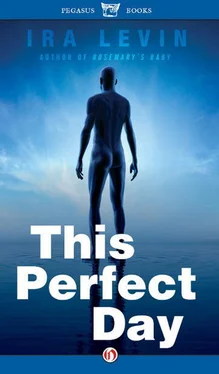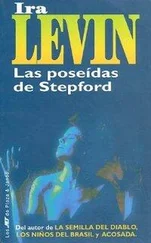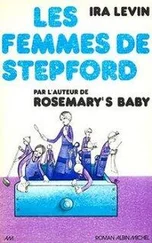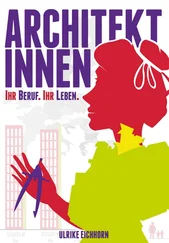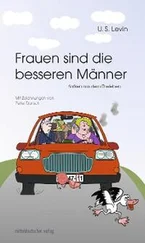Chip watched anxiously as Papa Jan went back up to the landing, opened the door to look, and then went quickly out. The door swung back toward closing.
Chip began to quiver again. He had passed a scanner without touching it, and now he was alone on a chilly silent stairway—and Uni didn’t know where he was!
The door opened again and Papa Jan came back in with blue blankets over his arm. “It’s very cold,” he said.
They walked together, wrapped in blankets, down the just-wide-enough aisle between two steel walls that stretched ahead of them convergingly to a faraway cross-wall and reared up above their heads to within half a meter of a glowing white ceiling—not walls, really, but rows of mammoth steel blocks set each against the next and hazed with cold, numbered on their fronts in eye-level black stencil-figures: H46, H48 on this side of the aisle; H49, H51 on that. The aisle was one of twenty or more; narrow parallel crevasses between back-to-back rows of steel blocks, the rows broken evenly by the intersecting crevasses of four slightly wider cross-aisles.
They came up the aisle, their breath clouding from their nostrils, blurs of near-shadow staying beneath their feet. The sounds they made—the paplon rustle of their coveralls, the slapping of their sandals—were the only sounds there were, edged with echoes.
“Well?” Papa Jan said, looking at Chip.
Chip hugged his blanket more tightly around him. “It’s not as nice as upstairs,” he said.
“No,” Papa Jan said. “No pretty young members with pens and clipboards down here. No warm lights and friendly pink machines. It’s empty down here from one year to the next. Empty and cold and lifeless. Ugly.”
They stood at the intersection of two aisles, crevasses of steel stretching away in one direction and another, in a third direction and a fourth. Papa Jan shook his head and scowled. “It’s wrong,” he said. “I don’t know why or how, but it’s wrong. Dead plans of dead members. Dead ideas, dead decisions.”
“Why is it so cold?” Chip asked, watching his breath.
“Because it’s dead,” Papa Jan said, then shook his head. “No, I don’t know,” he said. “They don’t work if they’re not freezing cold; I don’t know; all I knew was getting the things where they were supposed to be without smashing them.”
They walked side by side along another aisle: R20, R22, R24. “How many are there?” Chip asked.
“Twelve hundred and forty on this level, twelve hundred and forty on the level below. And that’s only for now; there’s twice as much space cut out and waiting behind that east wall, for when the Family gets bigger. Other shafts, another ventilating system already in place…”
They went down to the next lower level. It was the same as the one above except that there were steel pillars at two of the intersections and red figures on the memory banks instead of black ones. They walked past J65, J65, J61. “The biggest excavation there ever was,” Papa Jan said. “The biggest job there ever was, making one computer to obsolete the old five. There was news about it every night when I was your age. I figured out that it wouldn’t be too late to help when I was twenty, provided I got the right classification. So I asked for it.”
“You asked for it?”
“That’s what I said,” Papa Jan said, smiling and nodding. “It wasn’t unheard of in those days. I asked my adviser to ask Uni—well, it wasn’t Uni, it was EuroComp—anyway I asked her to ask, and she did, and Christ, Marx, Wood, and Wei, I got it—042C; construction worker, third class. First assignment, here.” He looked about, still smiling, his eyes vivid. “They were going to lower these hulks down the shafts one at a time,” he said, and laughed. “I sat up all one night and figured out that the job could be done eight months earlier if we tunneled in from the other side of Mount Love”—he thumbed over his shoulder—“and rolled them in on wheels. EuroComp hadn’t thought of that simple idea. Or maybe it was in no big rush to have its memory siphoned away!” He laughed again.
He stopped laughing; and Chip, watching him, noticed for the first time that his hair was all gray now. The reddish patches that he’d had a few years earlier were completely gone.
“And here they are,” he said, “all in their places, rolled down my tunnel and working eight months longer than they would have been otherwise.” He looked at the banks he was passing as if he disliked them.
Chip said, “Don’t you—like UniComp?”
Papa Jan was silent for a moment. “No, I don’t,” he said, and cleared his throat. “You can’t argue with it, you can’t explain things to it…”
“But it knows everything,” Chip said. “What’s there to explain or argue about?”
They separated to pass a square steel pillar and came together again. “I don’t know,” Papa Jan said. “I don’t know.” He walked along, his head lowered, frowning, his blanket wrapped around him. “Listen,” he said, “is there any classification that you want more than any other? Any assignment that you’re especially hoping for?”
Chip looked uncertainly at Papa Jan and shrugged. “No,” he said. “I want the classification I’ll get, the one I’m right for. And the assignments I’ll get, the ones that the Family needs me to do. There’s only one assignment anyway, helping to spread the—”
“‘Helping to spread the Family through the universe,’” Papa Jan said. “I know. Through the unified UniComp universe. Come on,” he said, “let’s go back up above. I can’t take this brother-fighting cold much longer.”
Embarrassed, Chip said, “Isn’t there another level? You said there—”
“We can’t,” Papa Jan said. “There are scanners there, and members around who’d see us not touching them and rush to ‘help’ us. There’s nothing special to see there anyway; the receiving and transmitting equipment and the refrigerating plants.”
They went to the stairs. Chip felt let down. Papa Jan was disappointed with him for some reason; and worse, he wasn’t well, wanting to argue with Uni and not touching scanners and using bad language. “You ought to tell your adviser,” he said as they started up the stairs. “About wanting to argue with Uni.”
“I don’t want to argue with Uni,” Papa Jan said. “I just want to be able to argue if I want to argue.”
Chip couldn’t follow that at all. “You ought to tell him anyway,” he said. “Maybe you’ll get an extra treatment.”
“Probably I would,” Papa Jan said; and after a moment, “All right, I’ll tell him.”
“Uni knows everything about everything,” Chip said.
They went up the second flight of stairs, and on the landing outside the display hallway, stopped and folded the blankets. Papa Jan finished first. He watched Chip finish folding his.
“There,” Chip said, patting the blue bundle against his chest.
“Do you know why I gave you the name ‘Chip’?” Papa Jan asked him.
“No,” Chip said.
“There’s an old saying, ‘a chip off the old block.’ It means that a child is like his parents or his grandparents.”
“Oh.”
“I didn’t mean you were like your father or even like me,” Papa Jan said. “I meant you were like my grandfather. Because of your eye. He had a green eye too.”
Chip shifted, wanting Papa Jan to be done talking so they could go outside where they belonged.
“I know you don’t like to talk about it,” Papa Jan said, “but it’s nothing to be ashamed of. Being a little different from everyone else isn’t such a terrible thing. Members used to be so different from each other, you can’t imagine. Your great-great grandfather was a very brave and capable man. His name was Hanno Rybeck—names and numbers were separate then—and he was a cosmonaut who helped build the first Mars colony. So don’t be ashamed that you’ve got his eye. They fight around with the genes today, excuse my language, but maybe they missed a few of yours; maybe you’ve got more than a green eye, maybe you’ve got some of my grandfather’s bravery and ability too.” He started to open the door but turned to look at Chip again. “Try wanting something, Chip,” he said. “Try a day or two before your next treatment. That’s when it’s easiest; to want things, to worry about things…”
Читать дальше
